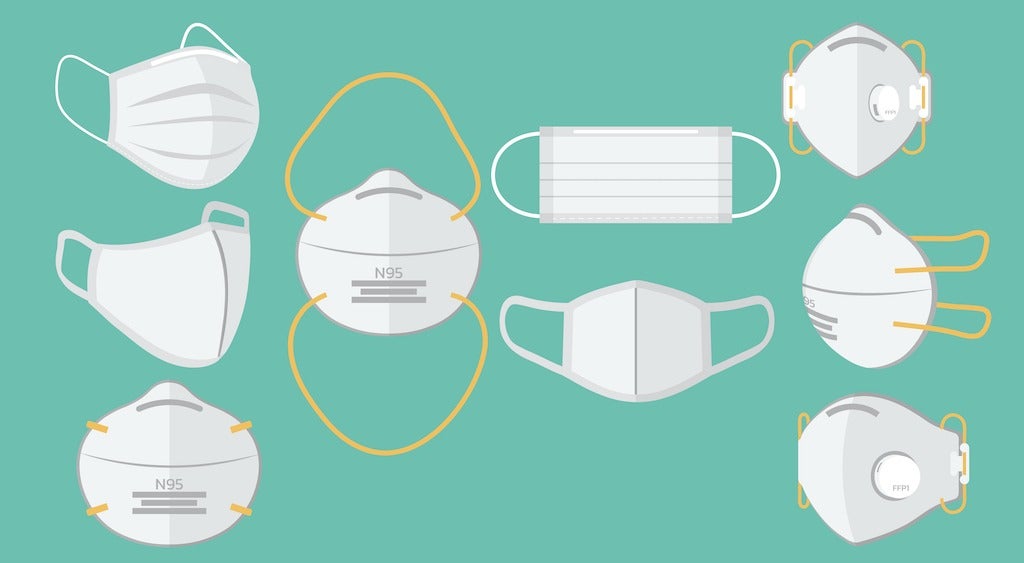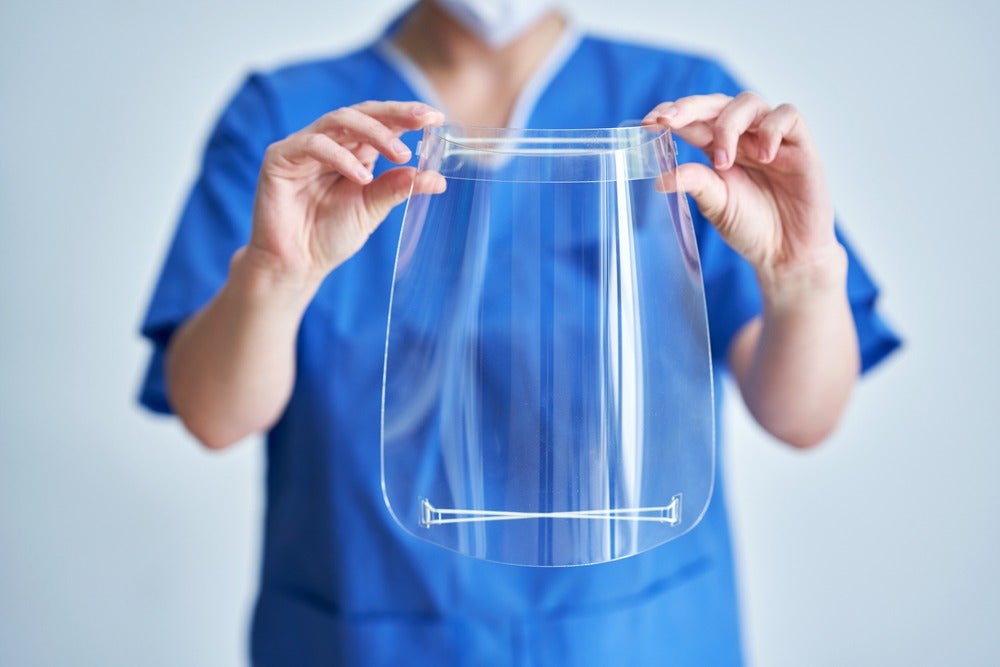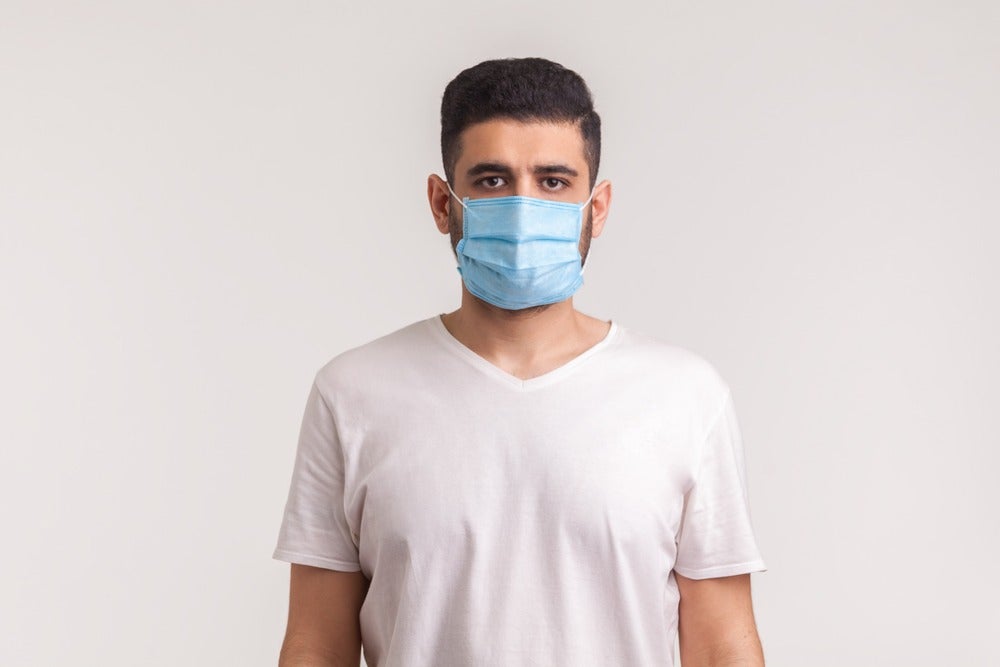
New research to be presented at this year’s European Congress of Clinical Microbiology and Infectious Diseases (ECCMID) in July has given new insight into the best face masks to wear in different settings to combat the spread of Covid-19.
The data shows that plastic face shields provide little or no protection from Covid-19 viral particles, while wearing a surgical face mask can provide similar protection against aerosols as wearing a respirator.
Dr Christian Sterr and his colleagues at Philipps University Marburg in Germany compared 32 types of mask intended for use in hospitals, including cloth and surgical masks, respirators and face shields.
Sterr said: “Members of the public should wear certified surgical face masks of good quality, rather than cloth masks or face shields, which performed poorly in our study, or respirators, which should be reserved for medical staff.
For medical staff, he added: “Face shields should only be used to keep masks and respirators dry when undertaking procedures in which there is a risk of splashes.”
The efficacy of personal protective equipment (PPE), including face masks, has been the focus of scientific and public interest since the emergence of the Covid-19 causing virus SARS-CoV-2, which is mainly transmitted through droplets and aerosols in poorly ventilated settings.
In order to contribute to the research in this area, Dr Sterr and his colleagues put certified and non-certified surgical face masks, cloth masks, face shields and medical respirators through three different tests.

What did the tests show?
Test one
The first experiment measured the filtration efficacy of the mask material.
Each mask was fixed to an air-collecting tube inside an airtight tank, and an aerosol of the chemical di-ethyl-hexyl-sebacat (DEHS) was pumped into the tank, with the aerosol particles in the collecting tube counted by a particle counter.
The average filtration efficacy was lowest for the cloth masks (28%), followed by the non-certified surgical masks (63%) and the certified surgical masks (70%).
The KN95 respirator material filtered out 94% of particles and the FFP2 mask material, 98%.
Test two
The second experiment measured the air pressure on either side of the mask.
Surgical face masks produced the lowest drop in pressure and so would provide the least resistance to breathing.
Type II surgical masks produced a pressure drop of 12.9 Pa/cm² – a measure of air permeability – while non-certified surgical masks produced a pressure drop of 16.2 Pa/cm².
Respirators produced pressure drops that were two to three times higher (26.8 Pa/cm² for FFP2 and 32.3 Pa/cm² for KN95). The results for the cloth masks ranged between 6.9 and 149.3 Pa/cm².
Test three
The third experiment measured the filtration efficacy of the masks as worn.
It used a similar set-up to the first experiment but the masks were mounted on a dummy head with an artificial trachea or windpipe, instead of being fixed to the air-collecting tube.
The artificial head was the size of the average person in the US and had a skin-like coating, to provide a more realistic mask fit.
The cloth masks and the non-certified surgical masks had the worst as-worn filtration efficacies, filtering out just 11.3% and 14.2% of the particles, respectively.
Remarkably, the type II surgical face masks had similar as-worn filtration results (47%) to the KN95 respirators (41%) and FFP2 respirators (65%).
The plastic face shields did not have any significant filtration efficiency

What do the results mean?
Experiments one and three focused on particles of 0.5 μm (micrometre) – a size judged to be realistic for SARS-CoV-2 particles, which cluster together.
The study’s authors say that for the best combination of optimum resistance against Covid-19 particles and ease of breathing, a face masks should combine good filtration with a low drop in pressure.
Dr Sterr said: “In our tests, respirators had two to three-fold higher airflow resistances than surgical face masks.
“This might lead to lower user adherence and, consequently, to a lower overall protection rate.
“Therefore, it seems reasonable to widely use surgical face masks in hospitals to prevent the virus from spreading, especially if distancing and quarantining are not possible.
“In situations where a patient cannot wear a mask (e.g. intubation), a surgical face mask does not seem sufficient to protect the healthcare worker from SARS-CoV-2.
“In such cases, respirators such as FFP2 masks should be considered.
“KN95 respirators should be worn only if other respirators are not available.”
The results of the Philipps University Marburg study match the warnings given by the EU Rapid Exchange of Information System (RAPEX) against the KN95 masks made in China.






